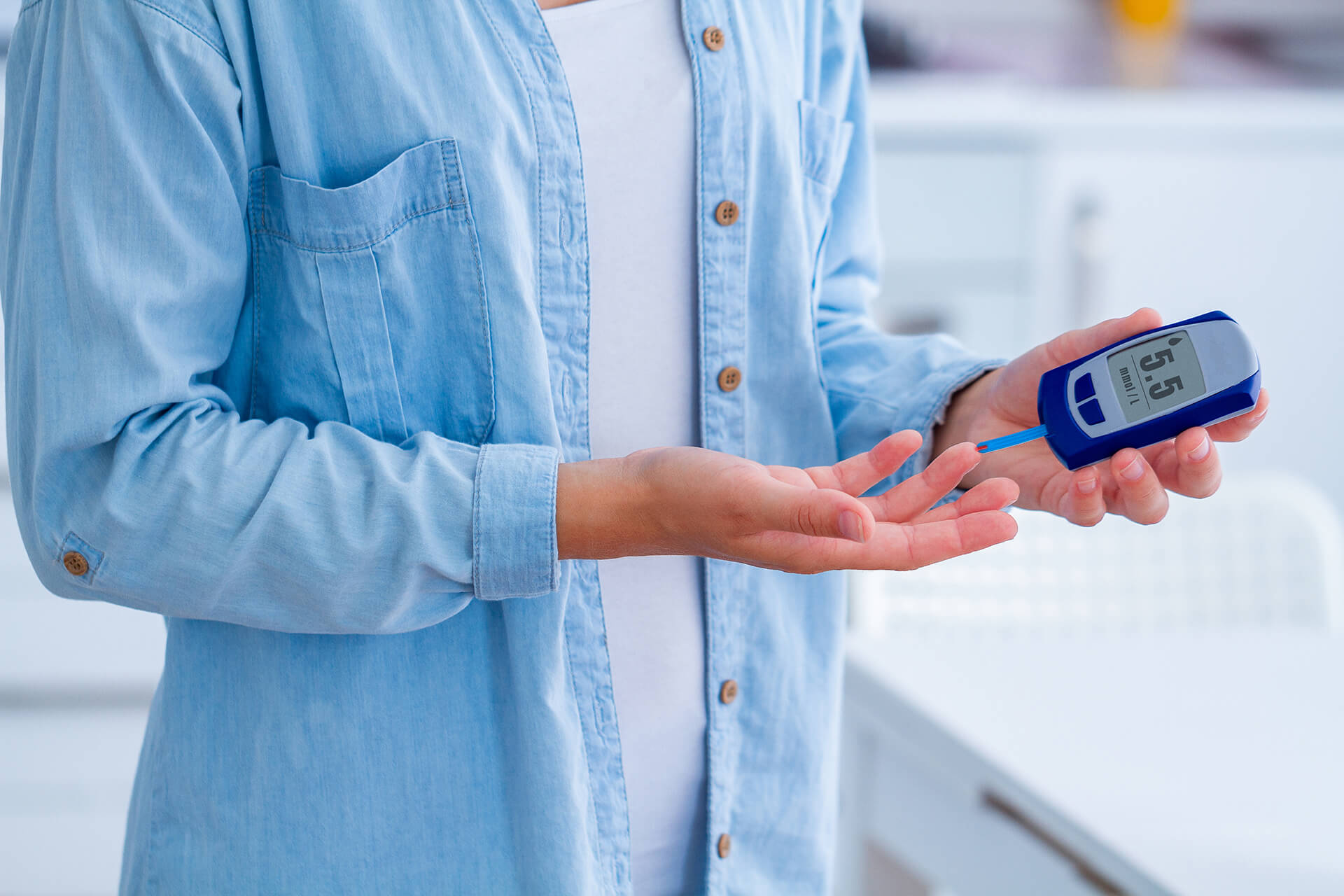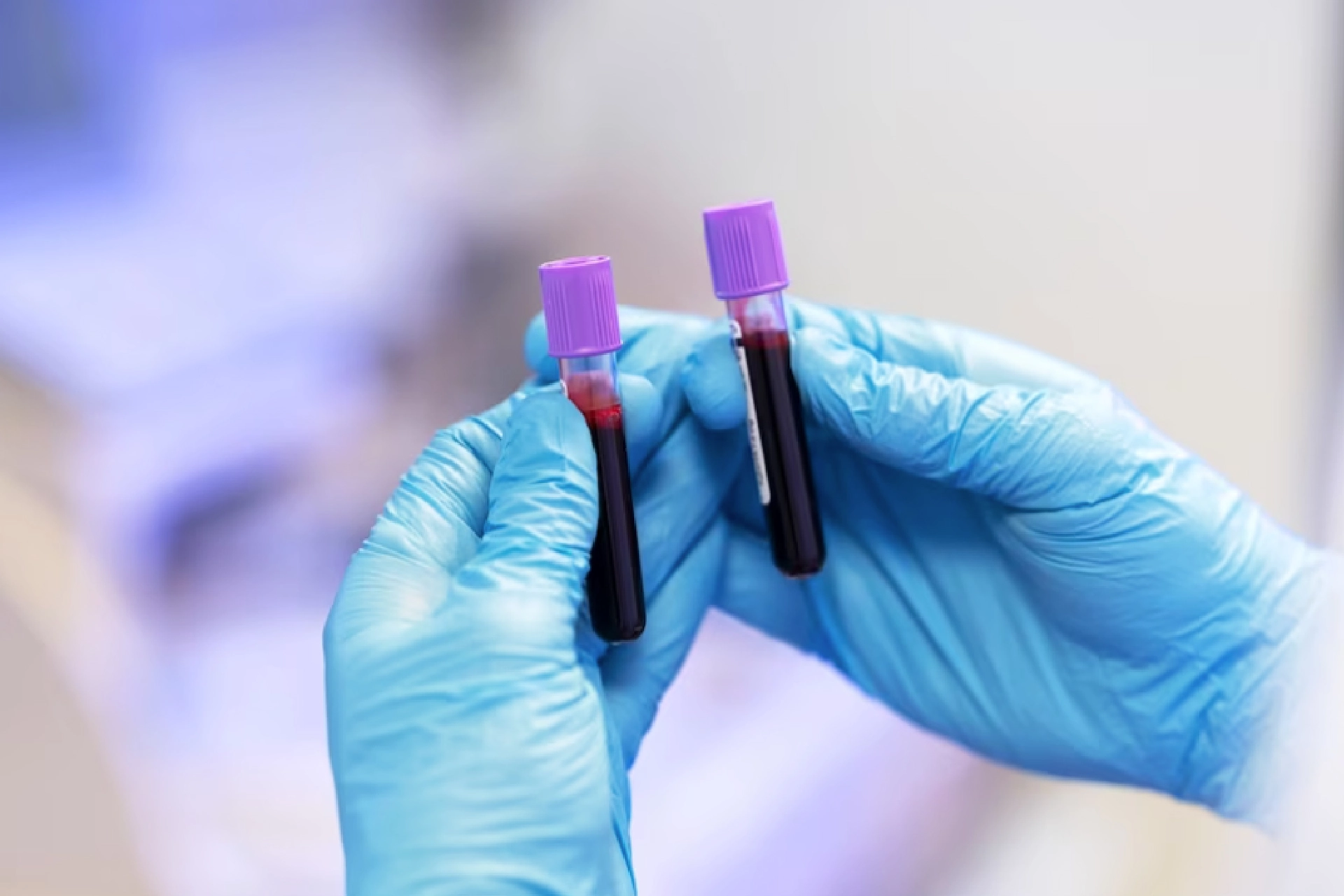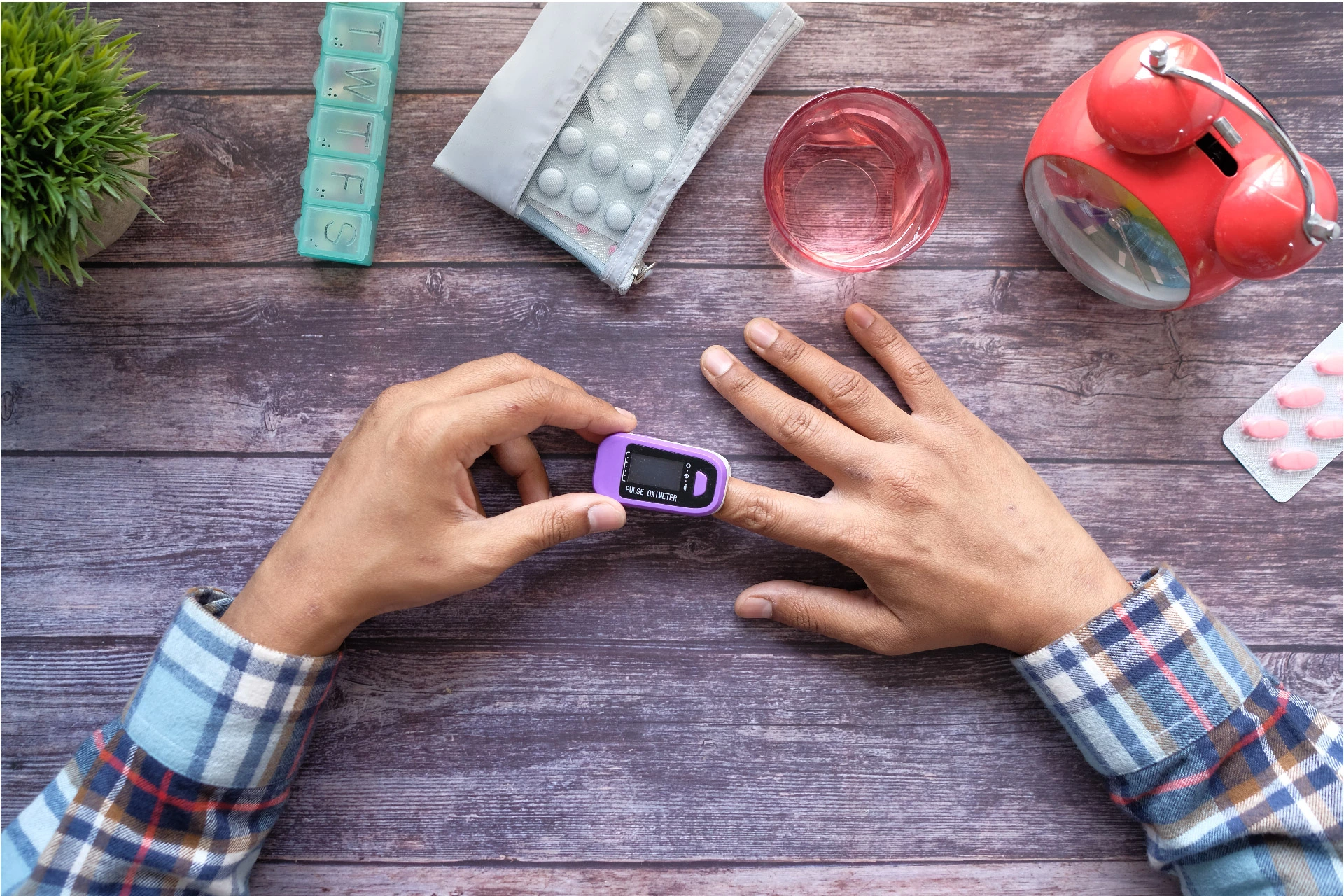Health Tests | 5 min read
Normal Blood Sugar Level Range and How to Measure it?
Medically reviewed by
Table of Content
Key Takeaways
- Diabetes causes a continuous spike in your sugar level
- Sugar level is measured in millimeters per deciliter (mg/dL)
- Fasting blood sugar level should be less than 100 mg/dL
If you have diabetes, your blood sugar is a constant topic of discussion during doctor visits. Diabetes guarantees a continual spike in your sugar level. This can expose you to many conditions like renal issues and even cancer. So, it is important to maintain a normal blood sugar level. But what is a normal sugar level? While there is a normal blood sugar range that can guide you, there is no blanket answer. We are all unique and respond differently to food, medication, and lifestyle changes. Your body type, age, genetics, and health history influence your glucose levels as well.
People with diabetes have different normal blood sugar levels than people without diabetes. So, it is best to rely on your doctor to know the ideal blood sugar range you should maintain. If you have diabetes, your doctor will work with you on creating a treatment plan. Read on to know more about the basics of blood sugar.
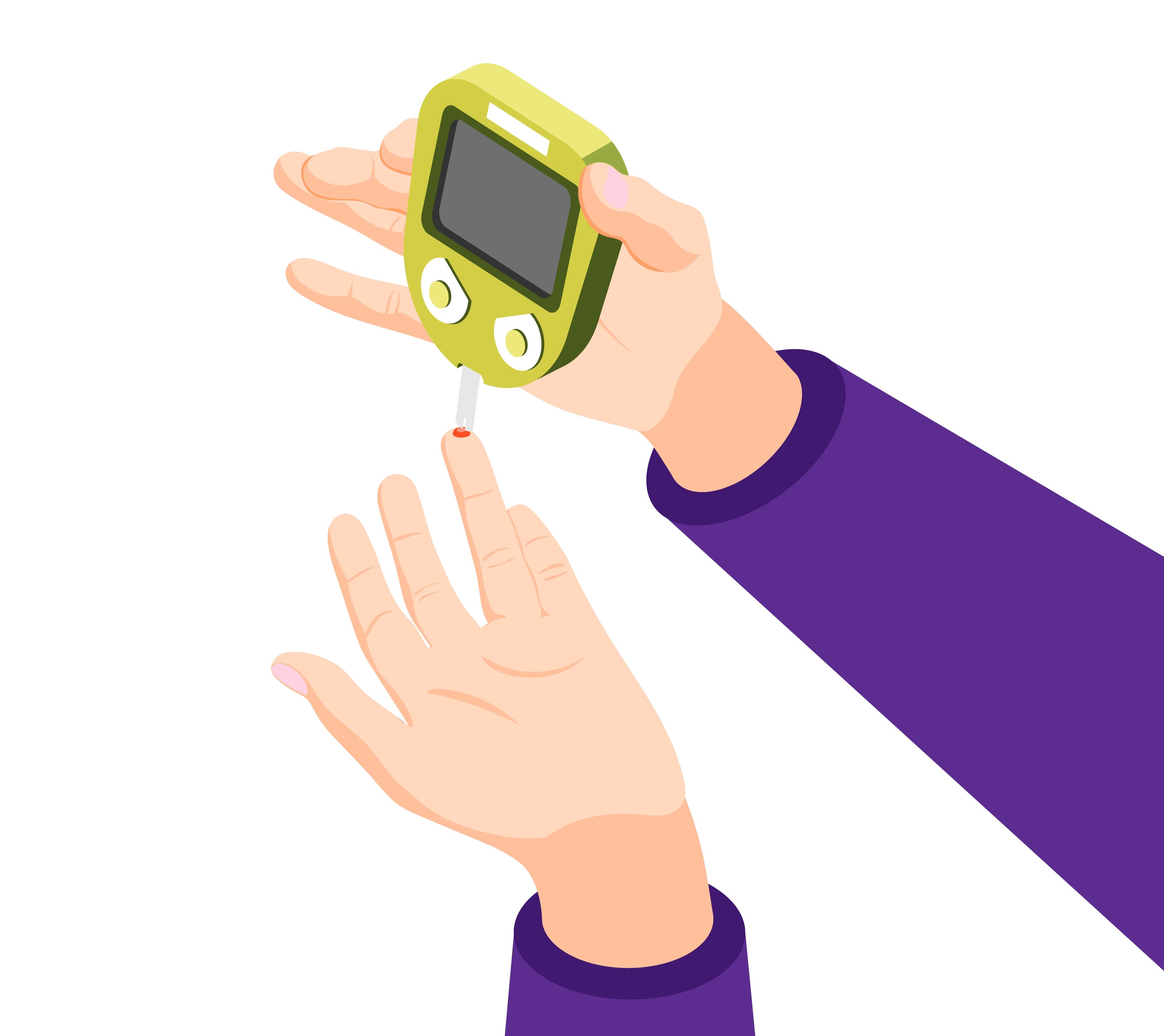
What are blood sugar levels?
Diabetes and blood sugar go hand-in-hand. Normal blood sugar levels ensure immunity against diabetes. Abnormal sugar levels increase your risk of many health complications. Managing your blood sugar range is necessary if you have diabetes. This condition hampers the body’s ability to produce enough or any insulin. This increases blood sugar levels in the body, posing many health risks.
Your body converts carbohydrates from food into sugar during digestion. Your blood carries this sugar to each cell. The cell converts sugar into energy, which is used during an activity. So, sugar levels go down after a strenuous workout. Your pancreas create insulin, which delivers sugar from the bloodstream to the cells.
There are four different types of diabetes. Each can hamper ability of your pancreas to produce insulin, the cell’s ability to use insulin, or both.
- Type 1 diabetes: Here, the body stops producing insulin
- Type 2 diabetes: Here, the pancreas stops making insulin, or the cells do not use insulin well.
- Prediabetes: This occurs when the cell does not use insulin right
- Gestational diabetes: Pregnant women develop this diabetes in the second or third trimester.
So, it is necessary to maintain sugar levels via diet, lifestyle changes, or medication.

What is the normal sugar level?
Sugar, in the form of glucose, is always present in your bloodstream. Depending on your age, time of day, and last meal, you can have high, low, or normal sugar levels. Blood glucose levels are measured in milligram per deciliter (mg/dL).
For a healthy person with no diabetes, the normal fasting blood sugar level is less than 100mg/dL. This can fluctuate throughout the day. Many factors like alcohol, periods, dehydration, and stress affect blood sugar levels.
Below are blood sugar level charts for different individuals.
Normal blood sugar levels chart for children with diabetes
| Age group | Fasting (mg/dL) | Before meals (mg/dL) | 1 to 2 hours after meals (mg/dL) | Before bed (mg/dL) |
| Below 6 years | 80-180 | 100-180 | ~180 | 100-120 |
| Between 6 and 12 years | 80-180 | 90-180 | ~140 | 100-180 |
| Between 13 and 19 years | 70-50 | 90-130 | ~140 | 90-150 |
Normal blood sugar levels chart for adults with diabetes
| fasting blood sugar level | <100 mg/dL |
| Before meals | 70-130 mg/dL |
| An hour or so after meals | <180 mg/dL |
| Bedtime | 100-140 |
Blood sugar levels higher or lower than those given in these sugar level charts are abnormal. Low blood sugar levels can cause fatigue, weakness, and fainting. High blood glucose levels however can go unnoticed. You may only experience its symptoms once it crosses 250 mg/dL, which can be fatal.
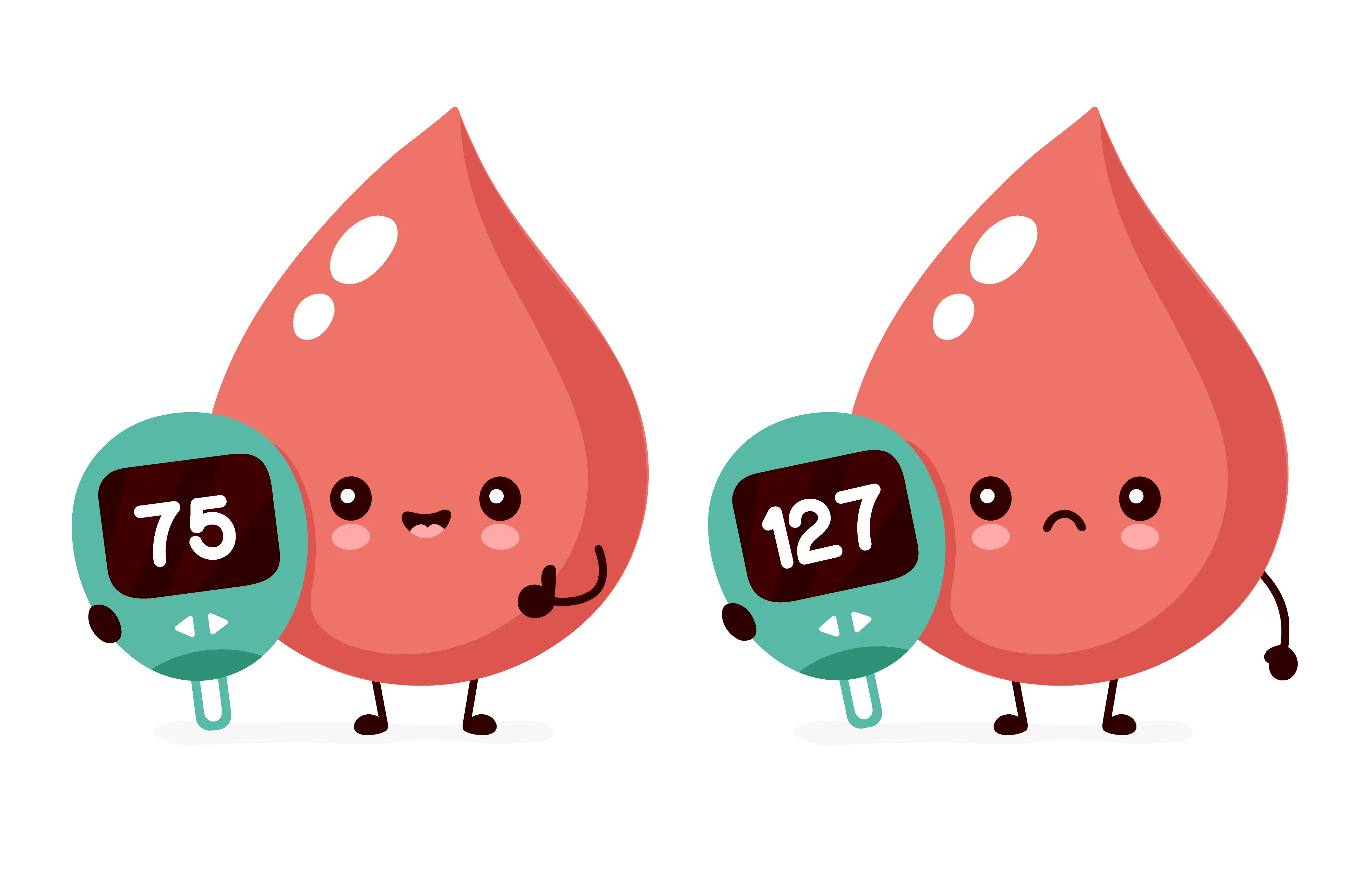
What are the tests to check your blood glucose levels?
The optimal time to check blood glucose levels varies for people. It depends on your doctor and your health conditions. Doctors may ask you to take one of the following blood sugar tests.
- Random sugar test: Here, a blood sugar test is taken randomly after or before a meal.
- Fasting blood sugar test: Here, you have to fast for at least 12 hours before the test.
- Before and after meals: This is taken to know the effect of food on your blood sugar levels.
- Before meals: This test is done to know the amount of insulin a diabetic patient needs.
How to check your blood glucose levels?
You can measure your glucose levels at home using an electronic glucose level monitor. You first prick your finger with a small lancet to remove blood. Then, place the blood on the strip and insert the strip in the monitor. The monitor shows your glucose level. You then dispose of the strip.
Doctors even use a continuous glucose monitor to measure real-time blood glucose levels. Here, a small wire is inserted into the skin under the abdomen. The wire measures your glucose levels every five minutes. The result is displayed on the monitor in your pocket.
Knowing your blood sugar level is essential, as it helps you take steps to control or prevent diabetes. Apart from exercising and eating healthy, ensure you get regular blood sugar tests. You can do so from the comfort of your home by booking a diabetes test on Bajaj Finserv Health. You also enjoy huge discounts on routine tests and can avail of benefits like online consultation. If you want to protect yourself from diabetes you can avail diabetes health insurance.
References
- https://pubs.rsc.org/en/content/articlelanding/2019/mh/c9mh00625g/unauth
- https://www.sciencedirect.com/science/article/abs/pii/S2213858716300109
Disclaimer
Please note that this article is solely meant for informational purposes and Bajaj Finserv Health Limited (“BFHL”) does not shoulder any responsibility of the views/advice/information expressed/given by the writer/reviewer/originator. This article should not be considered as a substitute for any medical advice, diagnosis or treatment. Always consult with your trusted physician/qualified healthcare professional to evaluate your medical condition. The above article has been reviewed by a qualified doctor and BFHL is not responsible for any damages for any information or services provided by any third party.
